Who knew that Canada has a different day for Thanksgiving? I really didn’t know that. And it took me moving to Haiti to figure that out. Apparently in the same fashion that dialects and cultures change (a modern day example), so did the Canadians change the day of Thanksgiving. Or it may have been the US that changed it. I really don’t know.
But I do know that I grew up cutting out paper cornucopias in school and learning about how Pocahontas celebrated Thanksgiving with the Pilgrims. I love Thanksgiving. It is my favorite holiday. I love the time together with family and being reminded to reflect on the grace that God gives us, every single day. I love the football and parades, the fun and the naps. In my opinion, it is our culture and cuisine and country at its finest hour, even with those potentially awkward extended family interactions that can accompany it (read this for some sound advice on that.) All of that said, I hadn’t given much thought to how Thanksgiving is strictly a North American (even though the Canadians changed it) holiday. That is, I hadn’t thought much about it until celebrating Thanksgiving in Haiti last year.
But then it got me thinking, and asking questions. And with Thanksgiving right around the corner, I started pondering all of this again.
Basically, everyone gets a turkey because they fall out of the sky.The first thing I learned is that many Haitians believe that in the US, once a year, on Thanksgiving day, all of the turkeys that are flying around (I have never even seen a turkey fly) all across the country suddenly descend to the ground and submit to be eaten. Basically, everyone gets a turkey because they fall out of the sky. That’s a crazy belief, but when you think about it, it is not that far from the truth. Almost every American (except for our vegetarian friends) does get a turkey that, though unwillingly, submits to being cooked and eaten on the same day all across the country.
I have also found that Haitians don’t celebrate Thanksgiving Day. Thursday is not a holiday here, so I may just be missing from the office after about noon this Thursday. Haitians though do know that it is a holiday in the US (who wouldn’t declare a holiday if turkeys were dropping out of the sky?) and the day is aptly translated from Creole as “Turkey Party.” They would however celebrate it in Haiti if the turkeys were dropping from the sky here too.
I’ve also been thinking about what it means to give thanks, wrestling what I have traditionally thought it means, compared to what deep thanksgiving should be. I assume that in reading this blog, and being reminded of Haiti, it would be easy to thank God for all that he has given to you and to me. For the food he gives to eat and the health we live with. I think that is good. And everything we have is a gift from our Father who provides. But I think that stopping there misses the entire point. Let me explain…
Honestly, this is uncomfortable for me to even wrestle with, because I am reminded of friends of mine here in Haiti. One of my friends recently told me he hadn’t eaten in two weeks. He had told me we had not seen each other in 16 days, and I didn’t know how he knew that, but when that time coincides with your last meal, you can count the days that have passed much more specifically. And while I thank Jesus that I can’t think of a time I have involuntarily missed two consecutive meals any time in my life, this is hard to do wholeheartedly when real friends share the real hardships of life. Other friends know people who have died unexpectedly from treatable Cholera, or we have friends who are still living in tents from an earthquake 11 months ago. These stories are not just isolated to Haiti. People all around the world have similar stories, as I sleep every night with a full stomach in a bed, in a room, with electricity, windows, doors, and a roof.
So this Thanksgiving, I will be thanking God for the gifts he has given me, for the food I get to eat, and for the home I get to sleep in. He gave us all of those things, and he deserves our gratitude. But I think we have to be very careful. This gratitude can easily turn to arrogance, feeling like we deserve the blessings we are thankful for, and in turn – seeing it from the Haitian side of the proverbial fence – this can be very demeaning to those people who do not have the same comforts.
So, with this awareness, may all of our gratitude come from deeply thankful hearts, and may it make us ever more humble.
We don’t have to be in the US (or Canada) or discussing Pilgrims to live out and celebrate this redemption with gratitude.I say all of this to say, our real thanksgiving is only real thanksgiving when fixed on what God has really done for all of us in giving us Jesus, so that he could give us hope, atonement, redemption, blessing, joy, and life. We can’t do anything to earn these gifts, and all we can do is give God our heart of thanksgiving. All arrogant entitlement to blessing should then fade away. Every one, regardless of what country they are from, where they sleep, or how much food they eat, can thank God for his real gifts, and can then live out a life of humble thanksgiving in response to the grace we have been given. That is real Thanksgiving, and we don’t have to be in the US (or Canada) or discussing Pilgrims to live out and celebrate this redemption with gratitude.
And I thank God for my Haitian friends who have taught me that.
But I do know that I grew up cutting out paper cornucopias in school and learning about how Pocahontas celebrated Thanksgiving with the Pilgrims. I love Thanksgiving. It is my favorite holiday. I love the time together with family and being reminded to reflect on the grace that God gives us, every single day. I love the football and parades, the fun and the naps. In my opinion, it is our culture and cuisine and country at its finest hour, even with those potentially awkward extended family interactions that can accompany it (read this for some sound advice on that.) All of that said, I hadn’t given much thought to how Thanksgiving is strictly a North American (even though the Canadians changed it) holiday. That is, I hadn’t thought much about it until celebrating Thanksgiving in Haiti last year.
But then it got me thinking, and asking questions. And with Thanksgiving right around the corner, I started pondering all of this again.
Basically, everyone gets a turkey because they fall out of the sky.The first thing I learned is that many Haitians believe that in the US, once a year, on Thanksgiving day, all of the turkeys that are flying around (I have never even seen a turkey fly) all across the country suddenly descend to the ground and submit to be eaten. Basically, everyone gets a turkey because they fall out of the sky. That’s a crazy belief, but when you think about it, it is not that far from the truth. Almost every American (except for our vegetarian friends) does get a turkey that, though unwillingly, submits to being cooked and eaten on the same day all across the country.
I have also found that Haitians don’t celebrate Thanksgiving Day. Thursday is not a holiday here, so I may just be missing from the office after about noon this Thursday. Haitians though do know that it is a holiday in the US (who wouldn’t declare a holiday if turkeys were dropping out of the sky?) and the day is aptly translated from Creole as “Turkey Party.” They would however celebrate it in Haiti if the turkeys were dropping from the sky here too.
I’ve also been thinking about what it means to give thanks, wrestling what I have traditionally thought it means, compared to what deep thanksgiving should be. I assume that in reading this blog, and being reminded of Haiti, it would be easy to thank God for all that he has given to you and to me. For the food he gives to eat and the health we live with. I think that is good. And everything we have is a gift from our Father who provides. But I think that stopping there misses the entire point. Let me explain…
Honestly, this is uncomfortable for me to even wrestle with, because I am reminded of friends of mine here in Haiti. One of my friends recently told me he hadn’t eaten in two weeks. He had told me we had not seen each other in 16 days, and I didn’t know how he knew that, but when that time coincides with your last meal, you can count the days that have passed much more specifically. And while I thank Jesus that I can’t think of a time I have involuntarily missed two consecutive meals any time in my life, this is hard to do wholeheartedly when real friends share the real hardships of life. Other friends know people who have died unexpectedly from treatable Cholera, or we have friends who are still living in tents from an earthquake 11 months ago. These stories are not just isolated to Haiti. People all around the world have similar stories, as I sleep every night with a full stomach in a bed, in a room, with electricity, windows, doors, and a roof.
So this Thanksgiving, I will be thanking God for the gifts he has given me, for the food I get to eat, and for the home I get to sleep in. He gave us all of those things, and he deserves our gratitude. But I think we have to be very careful. This gratitude can easily turn to arrogance, feeling like we deserve the blessings we are thankful for, and in turn – seeing it from the Haitian side of the proverbial fence – this can be very demeaning to those people who do not have the same comforts.
So, with this awareness, may all of our gratitude come from deeply thankful hearts, and may it make us ever more humble.
We don’t have to be in the US (or Canada) or discussing Pilgrims to live out and celebrate this redemption with gratitude.I say all of this to say, our real thanksgiving is only real thanksgiving when fixed on what God has really done for all of us in giving us Jesus, so that he could give us hope, atonement, redemption, blessing, joy, and life. We can’t do anything to earn these gifts, and all we can do is give God our heart of thanksgiving. All arrogant entitlement to blessing should then fade away. Every one, regardless of what country they are from, where they sleep, or how much food they eat, can thank God for his real gifts, and can then live out a life of humble thanksgiving in response to the grace we have been given. That is real Thanksgiving, and we don’t have to be in the US (or Canada) or discussing Pilgrims to live out and celebrate this redemption with gratitude.
And I thank God for my Haitian friends who have taught me that.
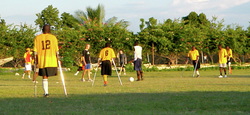
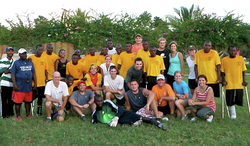
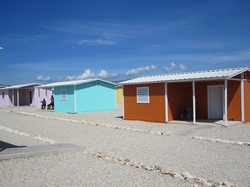
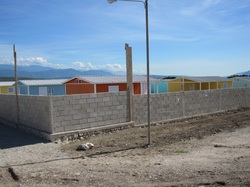
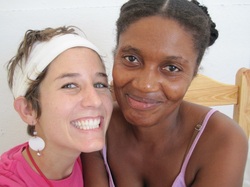
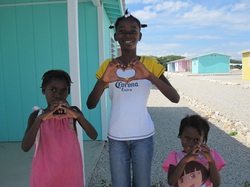
 RSS Feed
RSS Feed